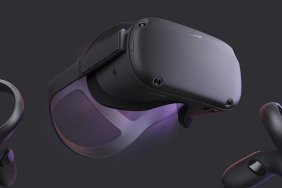Almost as soon as Oculus Rift’s steep $599 US price tag was announced, a major consumer backlash against the virtual reality headset began. With Oculus founder Palmer Luckey having previously stated that the device would be in “the ballpark” of $350, many were therefore shocked when it was revealed that it’d actually cost double that figure when its shipping cost is taken into account.
With many hoping that the headset would be more affordable, which would have made Oculus’ ambition to make VR “mainstream” a much more plausible reality, Twitter, Facebook and various other sites became littered with complaints leveled at Oculus’ decision, revealing how their interest in the headset has now dipped considerably.
The VR hype train. #OculusRift pic.twitter.com/kr2bXtjj8x
— Ken Landefeld (@DetectiveX) January 6, 2016
#OculusRift won’t be cheap at launch. $599 or €699. Add that to cost of fire breathing PC to run VR content and things get costly.
— Marc Cieslak (@MarcCieslak) January 6, 2016
Gonna start billing for these gifs in 2016 y’know #OculusRift pic.twitter.com/3g5dGq5Mrz
— graphμre (づ・8・)づ (@graphure) January 6, 2016
We always knew that the Oculus Rift was going to be costly, but it seems that Oculus has drastically overestimated how much consumers will pay for the VR headset. While its reception online isn’t necessarily indicative of how many units it will shift, it does point to a vast amount of those who were previously excited for VR suddenly being less enthusiastic about it.
Reddit’s Oculus subreddit is currently littered with posts bemoaning the decision, with many reiterating previous comments made by Luckey & co. which suggested that the device would launch at a cheaper price point. One commenter wrote: “Now we know why they kept the price such a secret,” while others pointed to an AMA (Ask Me Anything) session Luckey will be holding this evening, which is looking set to see him fielding an array of complaints.
599$ for the Oculus Rift is going to put a large amount of people off. It’s new unproven tech which was already a hard sell, odd decision.
— GamesNosh (@GamesNosh) January 6, 2016
I wish I could afford an Oculus Rift 🙁
— Markus Persson (@notch) January 6, 2016
Are you buying an Oculus Rift? pic.twitter.com/bxYaZEem3s
— Wario64 (@Wario64) January 6, 2016
Unfortunately, this immediately puts the Rift and any future iterations of Oculus’ headset at the bottom of an uphill battle, as if this online reaction is anything to go by, it could well wind up selling far less than anticipated. If this is to be the case, then developers will be less keen to go to the trouble of providing games and apps for it, which will serve to taint the experience for those who are able to afford it due to them having less software to play with.
This is an early stumbling block in Oculus’ plans to bring VR to the mainstream, and though it’s one they likely expected, it’s certainly not one that the company will welcome. Whether this negatively impacts upon the future of the tech remains to be seen, but after 2015 saw the technology receiving almost unanimously positive press, its 2016 is off to a less successful start.









